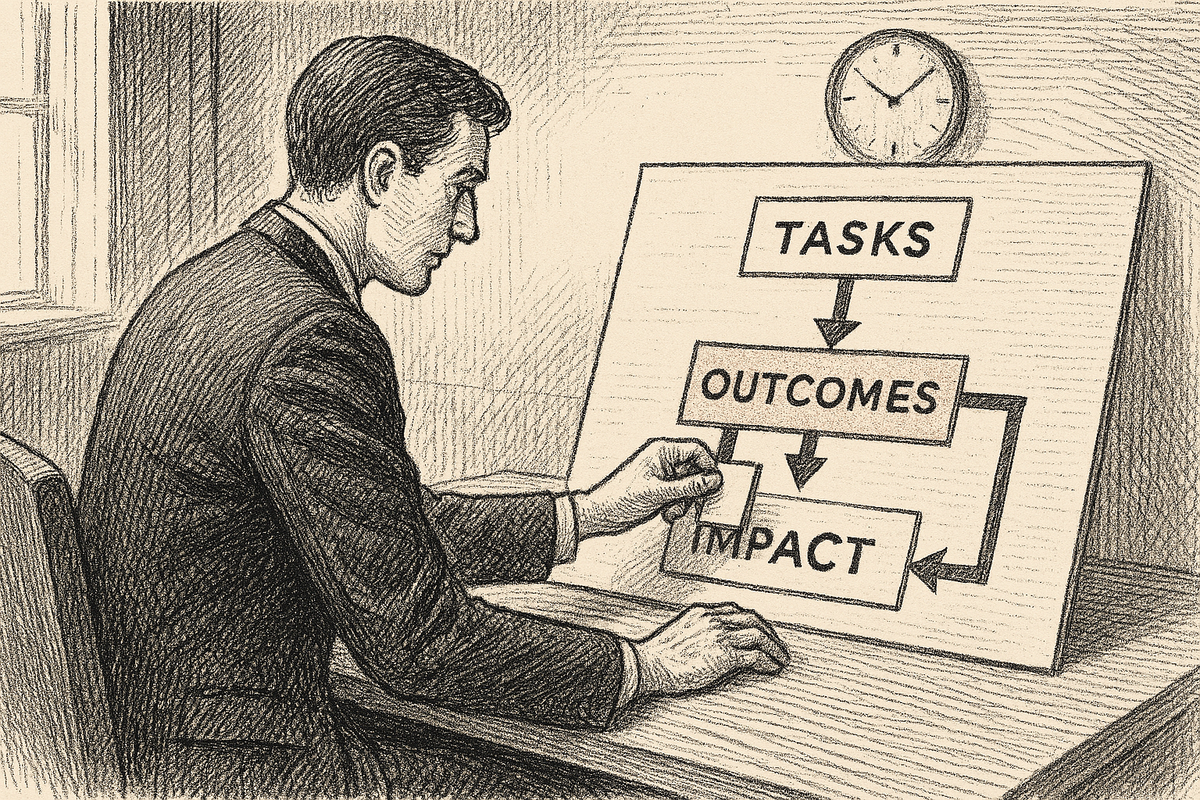Office Politics for Ethical Leaders: Navigating Without Losing Yourself
Can you lead with integrity and play the political game? This article unpacks how ethical leaders can navigate office politics without compromising their values—by using influence wisely, reading power dynamics, and showing up where it matters most.
When Playing It Straight Starts to Feel Like Falling Behind
You’ve done the right things.
Delivered results. Built trust. Avoided gossip. Earned the respect of your team.
And yet—someone else seems to have the inside track. They're pulled into pre-meetings you weren’t invited to. Their ideas get echoed (and endorsed) more quickly. Their visibility feels effortless.
You catch yourself thinking:
"I don’t want to play games... but am I being naïve?"
That quiet dissonance—that friction between your values and the unspoken rules of power—is where many ethical leaders begin to wonder if politics is the one skill they were never taught.
But avoiding it altogether doesn’t make you principled.
It often just makes you less visible.
The Invisible System That Shapes Outcomes
“Office politics” often conjures images of manipulation and ego. But in reality, it’s just the informal operating system of any organization—how influence flows when structures aren’t enough.
We’re taught to value logic, merit, and hard work. But decisions—especially at senior levels—are rarely made on merit alone.
They’re shaped by perception, relationships, trust, and timing.
Here’s the unspoken truth: High-integrity leaders can—and must—engage with politics ethically.
To avoid the game entirely is to let others decide outcomes you could have shaped.
But engaging doesn’t mean performing or pretending.
It means learning the system well enough to move through it without being defined by it.
What the Research Reveals
A comprehensive study published in Academy of Management Perspectives reviewed 138 independent studies across 27,000 individuals and found a strong, consistent relationship between political skill and career success, perceived leadership, and organizational influence[1]. But there’s a crucial nuance: the most effective political actors weren’t the most aggressive—they were the most emotionally intelligent.
Further, research in Organizational Behavior and Human Decision Processes introduced the idea of “pro-social political behavior”—influence aimed at protecting team integrity, elevating good ideas, or aligning stakeholders. These individuals were not only better performers, but also reported higher well-being and lower emotional exhaustion than those who disengaged completely[2].
What this reveals is clear: ethical influence is both effective and sustainable.
“Politics don’t erode your values. But avoiding them might erase your voice.”
What Ethical Engagement Actually Looks Like
Once you reframe politics as how decisions happen when people are involved, the path becomes clearer. Here's how ethical leaders navigate without losing themselves:
1. Decode the Informal Power Map
Don’t just study the org chart—watch who shapes conversations, not just who signs approvals. Observe who people check with before a meeting, or whose silence changes the room’s direction.
This isn’t manipulation. It’s organizational literacy.
2. Use Visibility Strategically, Not Selfishly
Ethical leaders often shy away from self-promotion. But being seen isn’t vanity—it’s stewardship. If your work has impact, it deserves to be visible so it can influence.
Share outcomes in the context of what the team achieved. Speak up not to elevate your voice, but to elevate the issue. Presence becomes power when it’s purposeful.
3. Anchor Decisions in Shared Values
When navigating sensitive conversations—like resource asks, role changes, or escalation—tie your rationale to the broader mission. Don’t make it about personal gain. Make it about protecting clarity, momentum, or collective goals.
This builds trust and reduces resistance.
4. Choose Coalitions Over Cliques
Build alliances across functions and levels—not just with people you like. Seek out those with influence and integrity. Relationships built on mutual respect—not shared cynicism—are the ones that scale influence ethically.
5. Name What’s Unspoken, With Grace
Ethical leaders don’t ignore misalignment—they address it with candor and care. Try phrases like:
- “It seems some decisions were socialized outside this forum. Can we align on process moving forward?”
- “I noticed this wasn’t brought up in the main discussion—can we surface it now for transparency?”
These moments may feel uncomfortable, but they often reset the tone for the room.
From Political Avoidance to Ethical Intelligence
Here’s the strategic shift: You don’t need to choose between authenticity and advancement.
What you need is ethical fluency—the ability to recognize how influence moves, and how to participate without being performative.
When you sidestep the politics altogether, you’re not staying neutral—you’re ceding ground.
The people who shape your company’s direction may do so without your insight, your clarity, your integrity.
And that’s not leadership. That’s absence.
Ethical engagement is how principled leaders stay in the room and stay aligned with themselves.
A Quiet Call to Action
This week, watch the decisions that matter most in your organization.
Ask yourself:
- Who shaped the conversation before the decision was made?
- What was said—and unsaid—in the room?
- Where did I have a chance to shape the outcome with clarity and care?
You don’t need to become someone else.
You just need to show up with your values—and your voice—in the places where power quietly moves.
- Academy of Management Perspectives, 2011 — “Political Skill and Career Success”: This meta-analysis found that political skill, especially when aligned with emotional intelligence, consistently predicted leadership success, job performance, and promotability across industries. ↩︎
- Organizational Behavior and Human Decision Processes, 2015 — “The Benefits of Prosocial Political Behavior”: This study ↩︎




